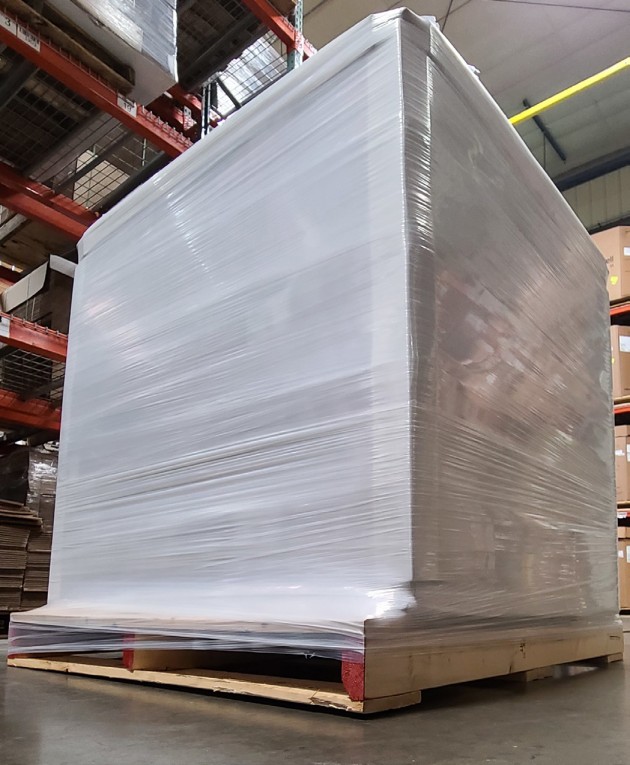Cortec Corporation has been awarded a US patent for its commercially compostable industrial strength stretch film technology, known as Eco Wrap film. The company says this patent is a significant milestone in its ongoing quest to develop environmentally responsible products.
Eco Wrap is a specialty wrapping film that the company says meets the EN 13432/ASTM D6400 standards for commercial composting and was certified industrially compostable by TÜV Austria (#TA8012106218) in 2021. It is elastic and suited for general machine stretch wrapping applications. Cortec says it can be used to replace conventional plastic stretch wrap, with the goal of improving the user’s environmental image and reducing conventional plastic waste when the material is properly disposed in a commercial composting environment.
According to Cortec, Eco Wrap can be used on most existing automated machines and is easily applied by adjusting (typically increasing) the tension on standard stretch wrapping equipment. It has also been tested on an orbital wrapping machine without breaking, showing greater strength than another film that did not successfully pass the trial.

Eco Wrap has many possible uses across multiple industries wherever palletisation is needed:
· Manufacturing: Countless raw materials and finished goods need to be placed on pallets and wrapped before storage or shipping. Items may include raw material drums, auto parts, computers, tools, wires, cables, carpets, and much more.
· Online retail: Online shopping represents a growing market share of retail and is a natural consumer of stretch wrap for palletising boxed goods. Companies can use Eco Wrap in an effort to reverse their negative image of contributing heavily to plastic packaging waste. By using Eco Wrap within their own supply chain, they will also have better oversight of making sure the film is disposed in the proper waste stream after use.
· Agriculture: Firewood, lumber, hay bales, and other agriculture materials can be bundled and wrapped with Eco Wrap.
· Baggage and furniture handling: Eco Wrap can be used to corral luggage at the airport or securely wrap furniture before loading it onto the moving van. These are two more applications where users have better oversight of disposal due to internal use.
· Food industry: The food industry presents a major opportunity for palletising cans, crates, bottles, cartons, and bags. Eco Wrap can be used for stretch-wrapping in these countless bulk packaging applications where there is no direct contact with food.





